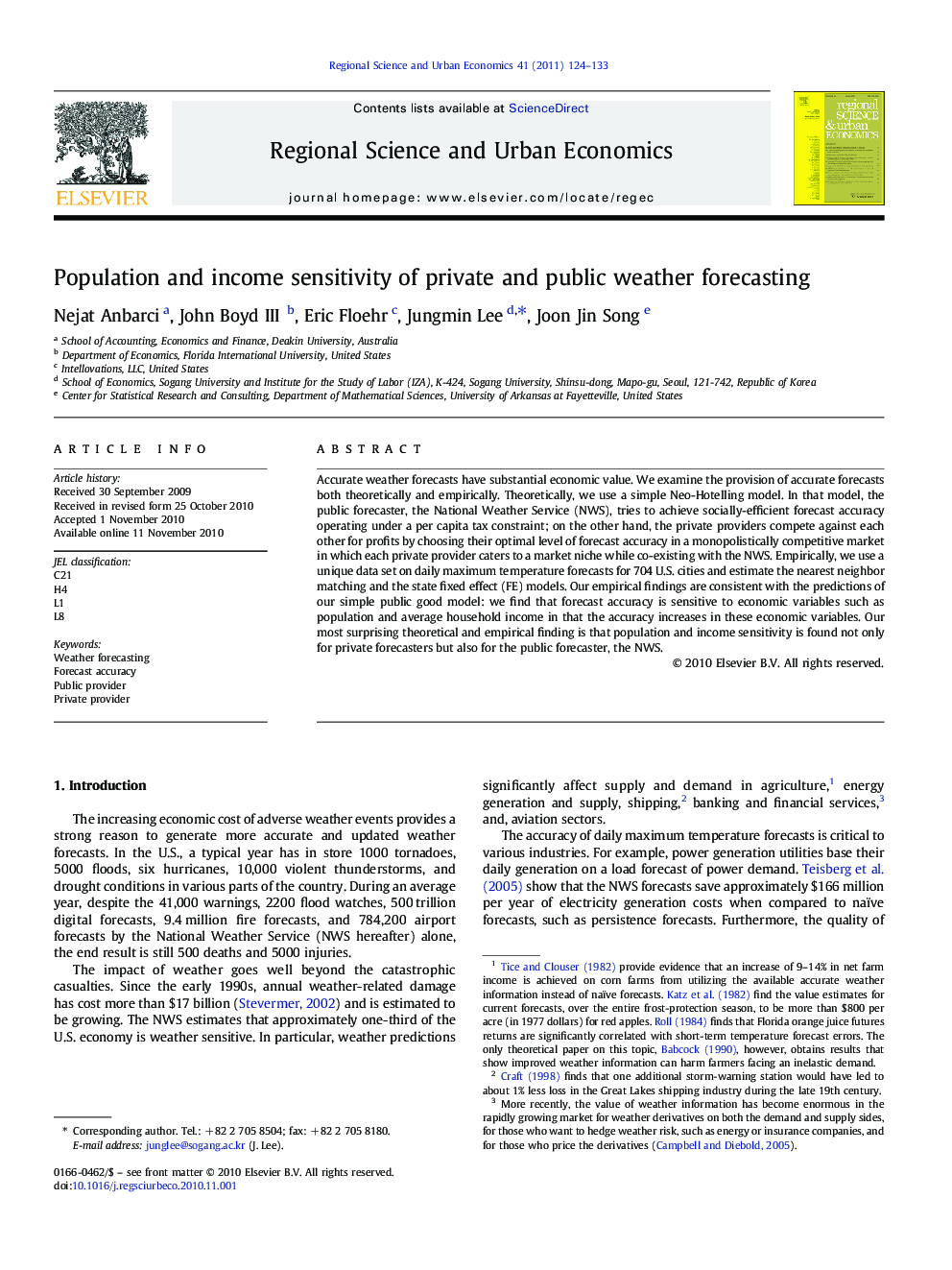| Article ID | Journal | Published Year | Pages | File Type |
|---|---|---|---|---|
| 983424 | Regional Science and Urban Economics | 2011 | 10 Pages |
Abstract
Accurate weather forecasts have substantial economic value. We examine the provision of accurate forecasts both theoretically and empirically. Theoretically, we use a simple Neo-Hotelling model. In that model, the public forecaster, the National Weather Service (NWS), tries to achieve socially-efficient forecast accuracy operating under a per capita tax constraint; on the other hand, the private providers compete against each other for profits by choosing their optimal level of forecast accuracy in a monopolistically competitive market in which each private provider caters to a market niche while co-existing with the NWS. Empirically, we use a unique data set on daily maximum temperature forecasts for 704 U.S. cities and estimate the nearest neighbor matching and the state fixed effect (FE) models. Our empirical findings are consistent with the predictions of our simple public good model: we find that forecast accuracy is sensitive to economic variables such as population and average household income in that the accuracy increases in these economic variables. Our most surprising theoretical and empirical finding is that population and income sensitivity is found not only for private forecasters but also for the public forecaster, the NWS.
Related Topics
Social Sciences and Humanities
Economics, Econometrics and Finance
Economics and Econometrics
Authors
Nejat Anbarci, John III, Eric Floehr, Jungmin Lee, Joon Jin Song,
